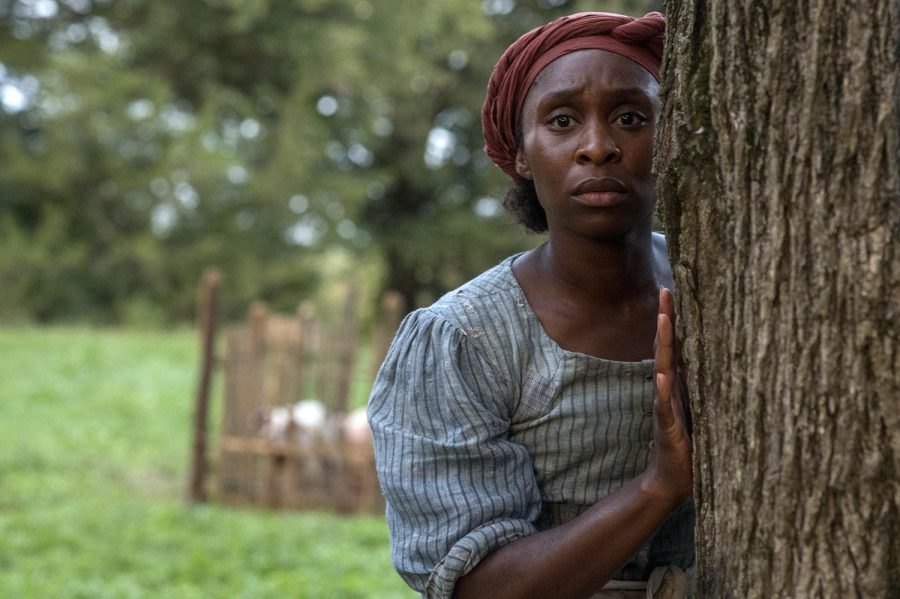Opinion: It’s about time Harriet Tubman’s story was told — but not like this
The Harriet biopic reduces the heroism of woman who worked to free hundreds of slaves down to the luck of unearned miracles.
This image released by Focus Features shows Cynthia Erivo as Harriet Tubman in a scene from "Harriet," in theaters on Nov. 1.
November 3, 2019
Powerful. Emotionally riveting. Applause inducing. Harriet has brought in the crowds for its opening weekend — only a mere 107 years after her death.
“Hero” seems like too small of a word for a woman who toiled to free an estimated 70 slaves through the Underground Railroad. She then saved an additional 700 people as the first woman to lead an assault in the Civil War — the Combahee River Raid.
Tubman is a force unlike any other. From the very beginning, she speaks her mind and confronts her plantation master. She utilizes her gumption, intuition, and bravery throughout the film. The most profound scenes are when Tubman is her unapologetic self.
Commanding the attention of historically prominent figures such as Frederick Douglas, Tubman reminds the room that she has not forgotten the brutality, anger, and inhumanity of being on the receiving end of a white man’s cruelty. She poetically inspires both her peers and the audience to continue their fight against injustice, and never forget those who suffer because they have made it to freedom or were born that way.
Yet, the film goes back and forth between moments like this where Tubman personifies everything that our nation needs and reducing her to almost a supernatural vessel of convenience.
It feels as though her story is being told for grade schoolers to understand her legacy, which does little justice for a figure long overlooked.
Harriet is a simplified look at an incredibly complex woman and period in history. No one questions the abundance of the white population who help Tubman along her journey or the too-easy distinction of good versus evil along the Mason-Dixon Line. It feels as though her story is being told for grade schoolers to understand her legacy, which does little justice for a figure long overlooked.
This is best articulated through the spells that Tubman experiences as a result of a head injury from the violence of her master. Each time they come over her, the audience gets a glimpse of Tubman’s future. These are understood to be God’s guidance, that without, it seems Tubman would not have survived slavery.
Tubman is a proudly religious woman, which I have the utmost respect for. But it made me uncomfortable how the movie reduces her perseverance to being touched by a superior being, rationalizing how she could be as successful as she is. Whenever she is in trouble — or the bridge to freedom is swarming with the enemy — her visions expediently come to her and save the day.
Her time to be on the big screen is overdue, but Harriet still doesn’t feel like Tubman’s story. It’s a culmination of snippets of what we think we know about Tubman, a product of checking off the boxes of history.
Tubman travels 100 miles for the first time in less than 10 minutes of screen time. The Fugitive Slave Act is haphazardly tossed into a spontaneous town uproar. The scar on her forehead is almost a character itself because of how much dialogue it receives, despite it being the least interesting facet of the protagonist.
It’s not enough to tell Tubman’s story in a way that a seventh-grade textbook would revel in. I want the crucial and life-changing stories that society has brushed aside to be as layered and cinematic as all of the other films about fictional nobodies. Is that too much to ask?
Tubman’s words and actions shook me to my core, staining tears on my cheeks as the lights came up. She did that — not God, and definitely not the sprinkling of white men who seemingly saved her.














